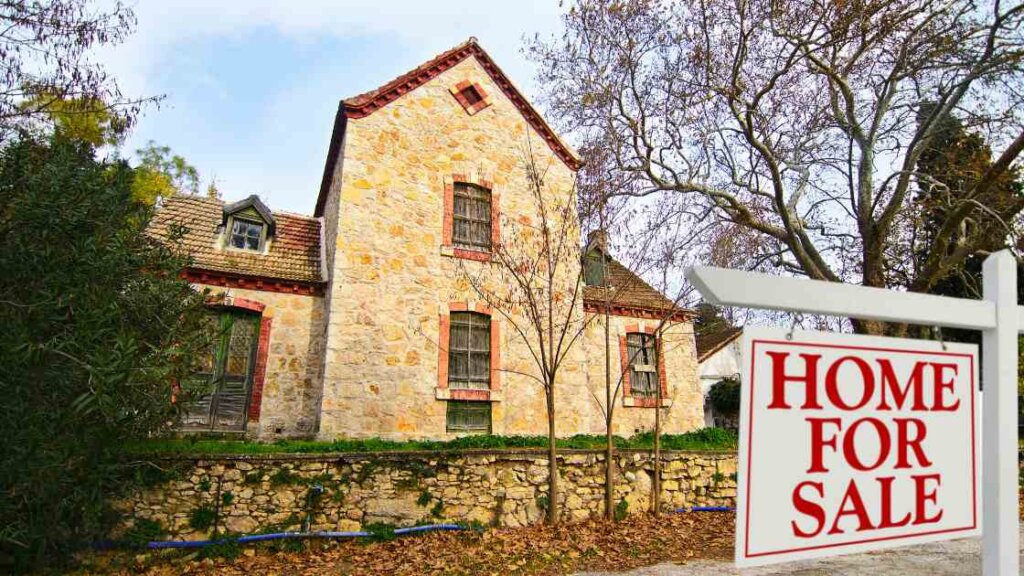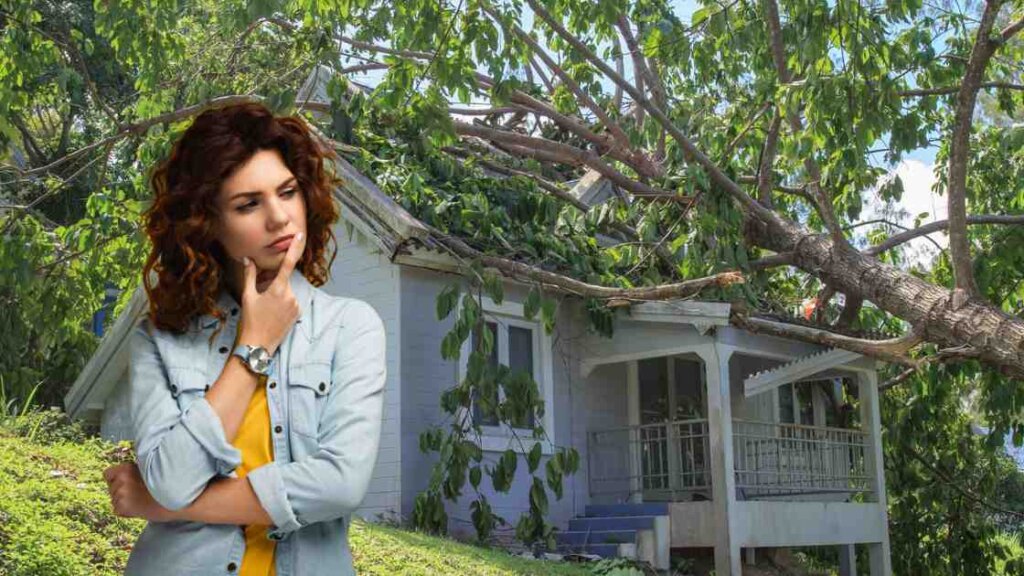

Buying or inheriting a condemned house can be a difficult scenario for property owners in Stockton. Dealing with code violations, required repairs, and legal ramifications when a house is condemned can be stressful for the owners. However, it is possible to rapidly dispose of a condemned house, either by selling it or performing the necessary repairs.
In this blog, we will look at condemned house owners’ rights and responsibilities, how to prevent a house from being condemned, how to get rid of a condemned house, how to sell a condemned house, how to buy a condemned house, repair and renovation options, the reality of living in a condemned house, and whether it’s worth investing in a condemned property. Understanding these matters allows homeowners and potential buyers to make informed choices. So, if you’re ready to learn how to get rid of a condemned house fast keep on reading!
Ways on How to Get Rid of a Condemned House

1. You Can Sell a Condemned Home to a Motivated Cash Buyer
Selling a condemned house can seem like a daunting task, but with the right approach, it can be done efficiently. When selling a condemned house, it’s crucial to disclose any code violations to potential buyers to avoid legal issues. Providing documentation regarding the condemned status of the house is essential in the selling process. In the following sections, we will explore the essential steps in selling a condemned house, the role of real estate agencies, and the pros and cons of purchasing a condemned property.
The Process of Selling a Condemned House
Essential Steps in Selling a Condemned House
Selling a house that has become condemned requires careful planning, consideration, and potentially dealing with the terms of a mortgage. Here are some essential steps to follow when getting rid of a condemned property:
- Understand the market value: Assess the market value of your condemned house to set a realistic asking price. This can be influenced by factors such as location, condition, and potential use of the property after necessary repairs.
- Consider cash offers: Real estate investors who specialize in buying condemned houses often provide cash offers, allowing for a quick sale. While the offer may be lower than market value, it provides a hassle-free solution for property owners looking to get rid of a condemned house quickly.
- Consult a real estate agency: Engaging a real estate agency can help market your condemned house effectively to potential buyers. Homeowners can provide valuable advice on promoting the positive aspects of the property and attracting interested buyers, even if the house may become condemned.
- Prepare necessary documentation: When selling a condemned house, it’s essential to provide documentation regarding the condemned status of the property to potential buyers. This ensures transparency and avoids legal complications in the future.
- Consider selling “as is”: Some buyers may be interested in purchasing a condemned house as a renovation project. Selling the property “as is” can attract buyers looking for a fixer-upper and may result in a quicker sale.
- By following these steps, property owners can navigate the process of selling a condemned house and find a suitable buyer efficiently.

The Role of Real Estate Agencies

Real estate agencies play a vital role in selling a condemned house. They have the expertise and resources to market the property effectively to potential buyers, including home buyers and real estate investors. Here’s how real estate agencies can assist condemned house owners:
- Marketing expertise: Real estate agencies have a comprehensive understanding of market trends, buyer preferences, and effective marketing strategies, even when the house is condemned and the homeowner still lives in it. They can use these insights to position a condemned home in a way that highlights its potential and attracts interested buyers.
- Wider network: Real estate agencies have a network of buyers, including real estate investors, who may specialize in purchasing condemned houses. This network can help condemned house owners find potential buyers quickly.
- Negotiation skills: Real estate agents are skilled negotiators who can help property owners get fair compensation for their condemned property. They can advocate on behalf of the owner to ensure a smooth and financially beneficial transaction.
- Legal knowledge: Real estate agencies have a thorough understanding of local laws and regulations regarding property sales, including condemned houses. They can provide advice and guidance to property owners to navigate potential legal complexities.
- By engaging a real estate agency, condemned house owners can benefit from their expertise, market reach, and negotiation skills to sell their property efficiently.
Steps to Prevent a House from Being Condemned
While owning a condemned house can be a daunting experience, there are steps that property owners can take to prevent their houses from being condemned. Addressing housing code violations promptly and rectifying necessary repairs are essential to avoid condemnation. Here are some steps homeowners can take to prevent their house from becoming condemned, especially if they’re still trying to live in the house.
- Conduct a thorough inspection to identify any code violations, safety concerns, or structural damage.
- Hiring professional contractors to address necessary repairs and bring the property up to code can help prevent a house from being condemned due to an infestation or unsafe conditions.
- Collaborate with local building authorities to understand the specific housing code violations applicable to your property.
- Regularly maintain the property to ensure a safe and habitable environment.
- Consider seeking legal advice to navigate the process effectively and avoid potential legal issues.
- By taking these steps proactively, homeowners can prevent their houses from becoming condemned, ensuring the safety of those who live in the house and avoiding legal implications.
2. Repair and Renovation Possibilities for Condemned Houses
Understanding the scope for repairs and evaluating the cost-benefit analysis is crucial for owners of condemned properties. Local government regulations may dictate specific requirements for renovating a condemned building and navigating these can be quite challenging. Home buyers should consider the potential financial implications and legal obligations associated with renovating a condemned home. With careful planning and professional guidance, refurbishing a condemned property could be profitable for homeowners if the costs to prevent it from becoming unsafe are justified.
Understanding the Scope for Repairs
Identifying essential repairs for human habitation, assessing structural damage versus market value, and examining safety concerns, including code violations, are crucial. The cost of repairs versus the property’s market value must be considered to make informed decisions. Understanding local building codes and authorities’ requirements is imperative for compliance. Incorporating these factors ensures that the condemned property meets safety standards and is attractive to potential buyers.
Evaluating the Cost-Benefit Analysis
When evaluating a property that has become condemned, homeowners need to weigh the expenses for necessary repairs against fair compensation, especially if they still live in the condemned home. Additionally, considering potential safety risks and public nuisance is crucial. Another factor homeowners need to consider is the cost of demolition versus potential profits when dealing with a house that may become condemned. Real estate investors need to determine if a condemned house is a good fit for their investment portfolio. Lastly, assessing if a condemned property could be a good fit for a new home is also important.
The Reality of Living in a Condemned House
Facing legal implications and risks associated with owning a condemned property involves understanding the powers of eminent domain and government entity involvement. Dealing with safety hazards, such as black mold or structural damage, is also crucial. Navigating the notice of condemnation and potential eminent domain proceedings can be overwhelming. Considering the peace of mind of living in a safe and habitable home is essential for any owner of a condemned property.
Legal Implications and Risks
Navigating the legal advice necessary for owning a condemned property is crucial. For homeowners, understanding the consequences of safety violations and serious concerns that may lead their house to become condemned is imperative. It’s essential to seek legal counsel to comprehend the implications of a condemned status and the powers of eminent domain. Moreover, comprehending how a condemned property affects property owner rights is vital.
Buying Condemned Houses: A Feasible Option?
Buying a condemned house is an option that may appeal to some buyers seeking a unique opportunity or a real estate investment project. However, it’s essential to consider the pros and cons of buying a condemned property before making a decision.
Pros and Cons of Buying a Condemned House
Buyers considering condemned houses benefit from acquiring property at a lower cost than new homes. Ownership of a condemned house still allows for customization and renovation, catering to personal preferences if you decide to live in the house after repairs. However, buyers must be cautious of potential serious violations during renovations. Dealing with clutter and black mold removal poses challenges. Evaluating repair feasibility is crucial to determine overall investment value.
Financial Considerations in Purchasing Condemned Houses
When considering purchasing condemned houses, buyers should evaluate the cost of repairs and renovations to determine financial feasibility. The condemned status offers negotiation opportunities for a lower purchase price. Assessing the potential post-renovation market value of a condemned house is crucial for homeowners considering whether to repair or demolish the building. Different financing options may apply, necessitating careful consideration. Seeking legal advice is essential to understand financial obligations and rights in the purchase process.
Is it Worthwhile to Invest in a Condemned House?
When the prospective cash offers from buyers are weighed against the expense of necessary repairs, investing in a condemned house may be a reasonable alternative for real estate investors. However, it is critical to assess the market worth following repairs and weigh the risks against investing in a new property. Furthermore, understanding the role of local housing authorities is critical.
The Bottom Line
Finally, dealing with a condemned house in Stockton might be a tough undertaking. To avoid having your home condemned, you must first understand your rights and responsibilities as an owner. If selling your condemned home is the best option for you, you should seek the help of a real estate agent that specializes in such properties. Those looking for investment opportunities, on the other hand, may find it possible to purchase a condemned house. However, before making a decision, it is critical to carefully weigh the advantages and disadvantages, as well as the financial repercussions. Finally, living in a condemned house has legal ramifications and risks that must be well recognized. Therefore, it is vital to consider the benefits and drawbacks.

Contact Us
We would love to hear from you! Please fill out this form and we will get in touch with you shortly.

